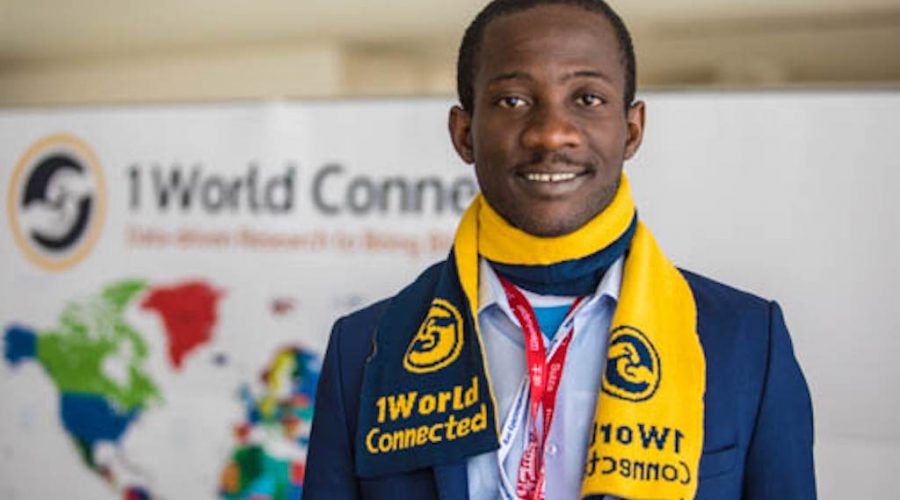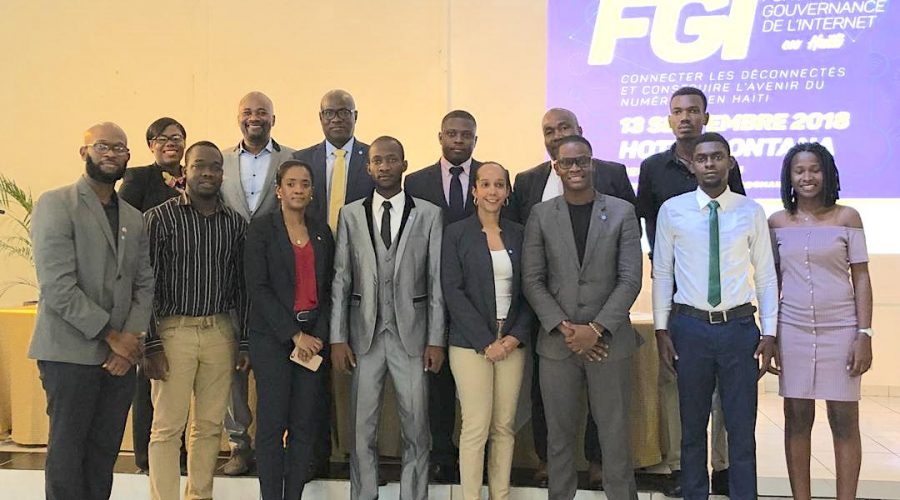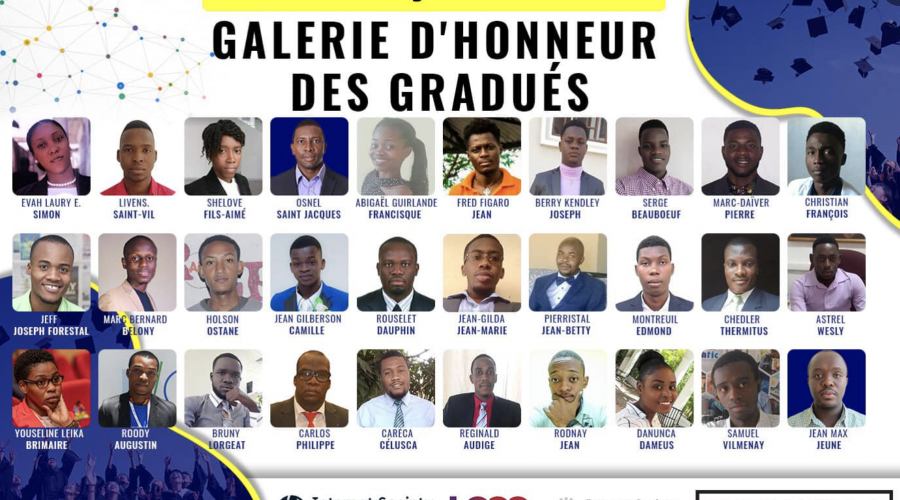Like many Haitian youth, Obed Sindy first accessed the Internet in a high school computer lab.
In Haiti, the Internet is still considered a luxury, with just 32% of the population using it in 2018. Although well below the world average (49%), it’s a marked increase from Haiti’s 12% penetration rate between 2015 and 2017.
Obed started learning about Internet access as a human rights issue while doing his Bachelor’s degree in Education and Social Sciences at Haiti’s Adventist University.
“People spend too much on telecoms in Haiti, which excludes many. We need policies to ensure more equity in Internet access. We talk about getting 5G access while others have no connection, or one that is so low they cannot download a PDF. But everyone has a right to the Internet”.
Obed Sindy
Obed joined the Internet Society as a global member in 2013 and enrolled in a series of online learning programmes to deepen his knowledge of ICTs in education. He earned a Certificate in Innovation and Techno-pedagogy from the University of Montreal in 2015 and a Certificate in Digital Learning from the United Nations University-MERIT in 2016, among others.
When Obed learned about the Internet Society’s Internet Governance Forum (IGF) fellowships in 2016, he applied and was selected, but his visa was denied. Still, he never gave up and finally attended the IGF in Geneva as a youth fellow in 2017.

“He was my first mentee and he’s so amazing,” says Alejandra Prieto, Senior Manager of ISOC’s Youth Fellowship Program. “Whenever there was a barrier, he would overcome it — whether it was the visa or language barriers, or his luggage getting lost. It was his first time outside Haiti. He participated in everything and wanted to be introduced to everyone. He was so emotional and so grateful. He still sends me WhatsApps about his achievements. He’s my success story that I always share.”
Obed was 25 at the IGF and recalls the experience as extremely enriching.
While doing the IGF training, Obed asked if there was an Internet Society Chapter in Haiti and was surprised to discover one. He joined in December 2017 and became an active member of the Youth Special Interest Group.
“I didn’t know there were elections coming up,” he explains, humbly. “Several young people in my network encouraged me to run and told me they would vote for me. I never expected to be elected President of the Chapter a few months later [March 2018]. I was only 26.”
“We want to be among the heroes who connect people,” he explains. “In line with the Internet Society’s mission, we want stakeholders to organize themselves and take joint action to advance the Internet in Haiti. Access is a priority and it’s a big challenge. We are preparing the ground but there are lots of issues. We’re really trying to get young people involved as part of the next generation.”
The Chapter sees community networks as the key to overcoming Haiti’s major access gaps. There’s just one problem: No CN has been able to get off the ground in Haiti, or the Caribbean.

“There are a lot of issues involved. You need to talk to governments to get spectrum; there are infrastructure issues, but Obed has started mobilizing the local community, which is important,” explains Shernon Osepa, Internet Society’s Director for Caribbean Affairs and Development. Obed is a great leader, a great motivator, and he is well known for his passion for the Internet. He has led various training programmes in Haiti.”
Obed won the 10 Outstanding Young Persons Award of the Junior Chamber International in 2019. A member of several organizations, he also co-founded Digital Grassroots, a non-profit that proactively engages youth to address Internet-related issues in their communities through digital literacy, networking and activism.
To catalyse community networks, the Haiti Chapter recently organized a six-week-long training for 120 young professionals from the regulatory body (CONATEL), the private-sector and civil society to help them initiate CNs. Supported by a US $3,500 Beyond the Net Small Grant from the Internet Society Foundation, the trainings were held online from June-July 2020, with almost all participants completing the training and 87 earning a certificate.

The Chapter also published a book analysing the challenges CNs face in Haiti, such as the fact that a good Internet connection can cost around 8% of a users’ monthly salary – a major barrier in a country where 70% of the population lives on less than $2 a day. One article highlights that electricity coverage is uneven, reaching 50% in urban areas, versus just 15% in rural areas. Other challenges explored include the lack of regulation, spectrum/frequency issues, and the return on investment in communities with low purchasing power.
The book also includes testimonials from participants in the CN training:
“This training constitutes a rich opportunity for young Haitians, like myself, who are ready to engage in positive change through community action.”
Livens Saint-Vil, a technician with Radio Universelle who plans to establish a community network in Dilaire, in the country’s northeast.
Obed says the Chapter plans to organize a second training for the most engaged participants, with materials to promote access in specific marginalized schools.
He says that during the COVID-19 lockdown, Haiti toyed with online classes, but there were just too many challenges and gaps [in access to the Internet, devices, space, electricity, etc.] The Government also explored television-based education, but it never materialized. Telework was only an option for the elite.
The Chapter also applied for, and was just awarded a US$30,000 Beyond the Net Large grant from the Internet Society Foundation for an initiative to map Internet access and speeds, particularly in the most vulnerable locations that could benefit from CNs. The benchmark report will address the lack of national data, as Haitian institutions currently rely on global estimates rather than producing their own.
“With these targeted local data, we hope to stimulate decision-makers to act. They will immediately see the need,” says Obed. “We also need to ensure not just their creation but their continuity.”
